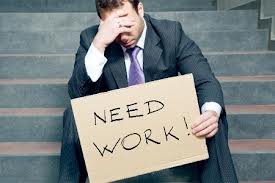The case against Minimum Wage

Money. It's what facilitates trade. It makes it possible to trade a can of beans for an apple. I sell the beans, I buy the apple, I also keep the change, which is the left-over value from the can of beans. Prior to this medium of exchange, if you needed 5 chickens which were worth half a cow, there really was no way to get just what you needed for your cow, you had to either get 10 chickens or something else to make up the rest of the value of a whole cow.

So that's why a medium of exchange is important. This allows us to trade with precision, and no one is stuck with more or less than they wanted. Lets move on to selling services, or labor.
Lets say I want to start a business. I either have saved up for or get a loan to fund the startup costs. A fraction of that cost is allocated for labor. Who will run the business? Who will sell the good or service? Who will deliver the good or service? How are their costs to be paid out? How much should each employee get? What factors go into that valuation? All of these are important questions the owner must ask themselves.
But let's ask another question: When will they get paid? If you're opening on day 1 of a business, what you get paid is solely dependent on whether or not you can turn a profit, that is, take in more money per billing cycle than you have to pay in order to keep your business running. In order to maximize this profit, it's important to understand the value the things you are paying for are bringing to your business.
Electricity is valuable, it produces the light to see in your store, to power various devices in your store that is required to run, such as an intercom, a phone, etc. Central air is important as well, as you want customers to feel comfortable while performing business transactions with you. Labor, also, must be calculated as well, but unlike central air and electricity, labor pricing is more flexible, and changes from person to person.

But what are the elements that go into pricing the labor of an individual person? Many components, but the most important is the value they create for the business, and the scarcity of the skill that produces that value.
A custodial position, for example, will offer little value. Sure, the place will be kept clean, but depending on the size of your business, that could take 5 minutes or a few hours.
Also, custodial skills aren't scarce, most adults can produce them. Why is the scarcity important? Well, as we all know, the more scarce, or rare, something is, the more valuable it is. This means, in terms of labor, the more scarce skill you have, the smaller the pool of people competing for that skill will be. The only thing left to ask is simple: is that skill in demand? That's the recipe for a high-paying wage: possessing a scarce skill and finding where there is a demand for that skill.
So, while the custodial skill brings a bit of value, (people are more comfortable shopping in a clean store), a marketing director is much more valuable, as they have the skill needed to launch a campaign aimed at driving more customers to your business. A custodial worker also uses a cleaning skillset that is very common and relatively easy to learn, where as a marketing director's skill takes specialized training that could take years to learn.

So how does the minimum wage play into all of this? Well, by stating that an employer must pay every employee a bare minimum, the government overprices the low value skilled jobs. If an employer estimates that a custodial worker, through keeping the place clean, generates $20/day in value, and he pays the custodial worker $15/day ,but he now has to pay the custodial worker $25/day, then he's losing money on the employment of that worker. At that point, he has a few options. He can choose to keep on the custodial worker, which will lose him money. He can fire the custodial worker, which will eliminate the $5 dollar profit he was making on the custodial worker's labor, as well as put the custodial worker out of a job.

Within these two options are things he can do to try to minimize the impact. He can unload the custodial worker's labor onto another employee, increasing their workload. While this may solve his problem of keeping the store clean, it also will impact the stress of that employee as well. If he chooses to keep the custodial worker on, he could minimize his loss by training the custodial worker in an additional field, increasing the value output of the custodial worker. This will also increase the custodial worker's workload and stress level. In both instances, training is necessary, which also bears a cost.
Another option is to increase the cost of the goods or services the employer charges their customer in order to make up for the lost value. The problem with this is that the more he shares, the less competitive he is, and his chance of surviving in the market goes down.

No matter which decision the employer makes in response to a raise/establishment of minimum wage, it inflicts a cost to him, and it hurts not only him but his employees as well. Wages are negotiated when the employee agrees to trade their labor for a price the employer offers. As all trades, if either party doesn't agree, the trade does not take place. By interfering on behalf of the employee and forcing the price of labor up, government damages all parties involved.
I hope you enjoyed this post. If you want more, up vote and give me a follow! I'll try to do these as often as I can.
Well put. Thank you for adding content.
There is a definitely a price when it comes to shifting resources between labor and capital which should be researched more.
Great post. It's time for more people to start understanding this!